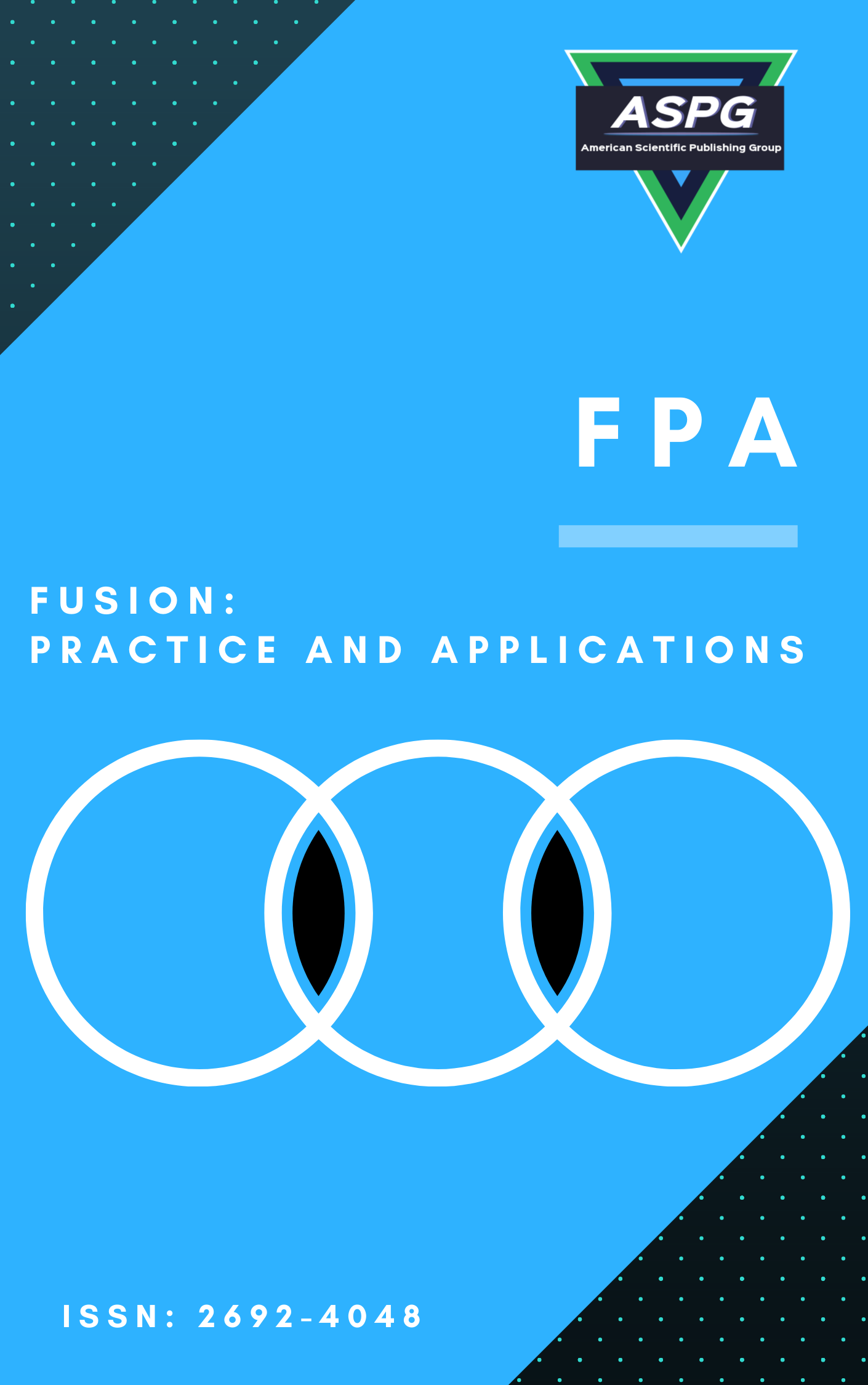

Volume 18 , Issue 2 , PP: 169-181, 2025 | Cite this article as | XML | Html | PDF | Full Length Article
Sultan Ahmed Almalki 1 , Tami Abdulrahman Alghamdi 2 * , Azan Hamad Alkhorem 3
Doi: https://doi.org/10.54216/FPA.180213
Cooperative Intelligent Transportation Systems (C-ITS) cannot work effectively if they do not have both efficient traffic management and solid security. We put forward in this paper an original framework that takes advantage of the Next Generation Simulation (NGSIM) dataset to improve traffic flow and system security by identifying False Data Injection Attacks (FDIA). By applying leading machine learning algorithms to authentic traffic data, we generate models that support improved vehicle coordination as well as provide assistance with security vulnerabilities in C-ITS systems. We are concentrating our method on the optimization of traffic dynamics by making intelligent decisions, while keeping the system secure from malicious cyber attacks. Analyses of the NGSIM data revealed that our proposed approaches produced important advancements in traffic flow efficiency and the accuracy of anomaly detection. Results prove that our framework minimizes congestion and concurrently enhances the reliability and security of collaborative vehicle systems. This investigation proposes a practical approach for fusing traffic optimization with cybersecurity, improving smart city evolution and the future of autonomous vehicles and vehicle connectivity.
Traffic Optimization , C-ITS , NGSIM Dataset , FDIA Detection , Machine Learning , Anomaly Detection , Cybersecurity
[1] S. Latif and N. A. Zafar, ”A survey of security and privacy issues in IoT for smart cities,” 2017 Fifth International Conference on Aerospace Science Engineering (ICASE), Islamabad, Pakistan, 2017, pp. 1-5, doi: 10.1109/ICASE.2017.8374288.
[2] Yang, P., Wang, X., Wang, L. (2023). ”Smart cities: the role of Internet of Things and machine learning in improving traffic efficiency and security.” Complex Intelligent Systems, 9, 12345-12360.
[3] Mahdavian, A., Shojaei, A., Mccormick, S., Papandreou, T., Eluru, N., Oloufa, A. A. (2021). Drivers and barriers to implementation of connected, automated, shared, and electric vehicles: An agenda for future research. IEEE Access, 9, 22195-22213.
[4] Lee, J., Williams, B. M. (2012). Development and evaluation of a constrained optimization model for traffic signal plan transition. Transportation Research Part C: Emerging Technologies, 20(1), 185-198.
[5] Ye, L., Yamamoto, T. (2018). Modeling connected and autonomous vehicles in heterogeneous traffic flow. Physica A: Statistical Mechanics and its Applications, 490, 269-277.
[6] Wang, Z., Zhao, X., Xu, Z., Li, X., Qu, X. (2021). Modeling and field experiments on autonomous vehicle lane changing with surrounding human-driven vehicles. Computer-Aided Civil and Infrastructure Engineering, 36(7), 877-889.
[7] Liu, K., Zhang, H., Zhang, Y., Sun, C. (2022). False data-injection attack detection in cyber–physical systems with unknown parameters: A deep reinforcement learning approach. IEEE Transactions on Cybernetics, 53(11), 7115-7125.
[8] Prabakar, D., Sundarrajan, M., Manikandan, R., Jhanjhi, N. Z., Masud, M., Alqhatani, A. (2023). Energy analysis-based cyber attack detection by IoT with artificial intelligence in a sustainable smart city. Sustainability, 15(7), 6031.
[9] Bao, H., Lu, R. (2015). A new differentially private data aggregation with fault tolerance for smart grid communications. IEEE Internet of Things Journal, 2(3), 248-258.
[10]Pinto, S. J., Siano, P., Parente, M. (2023). Review of cybersecurity analysis in smart distribution systems and future directions for using unsupervised learning methods for cyber detection. Energies, 16(4), 1651.
[11]Touahmia, M. (2018). Identification of risk factors influencing road traffic accidents. Engineering, Technology amp; Applied Science Research, 8(1), 2417–2421. https://doi.org/10.48084/etasr.1615.
[12]Srivastava, K., Kumar, A. (2023). The impact of road side friction on the traffic flow of arterial roads in Varanasi. Engineering, Technology amp; Applied Science Research, 13(4), 11157–11165. https://doi.org/ 10.48084/etasr.5897